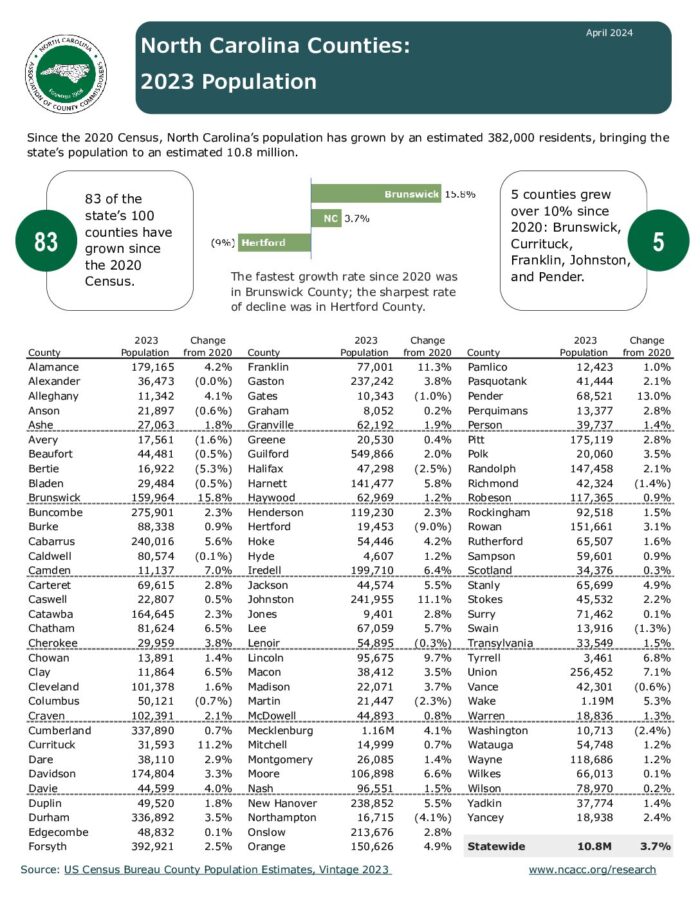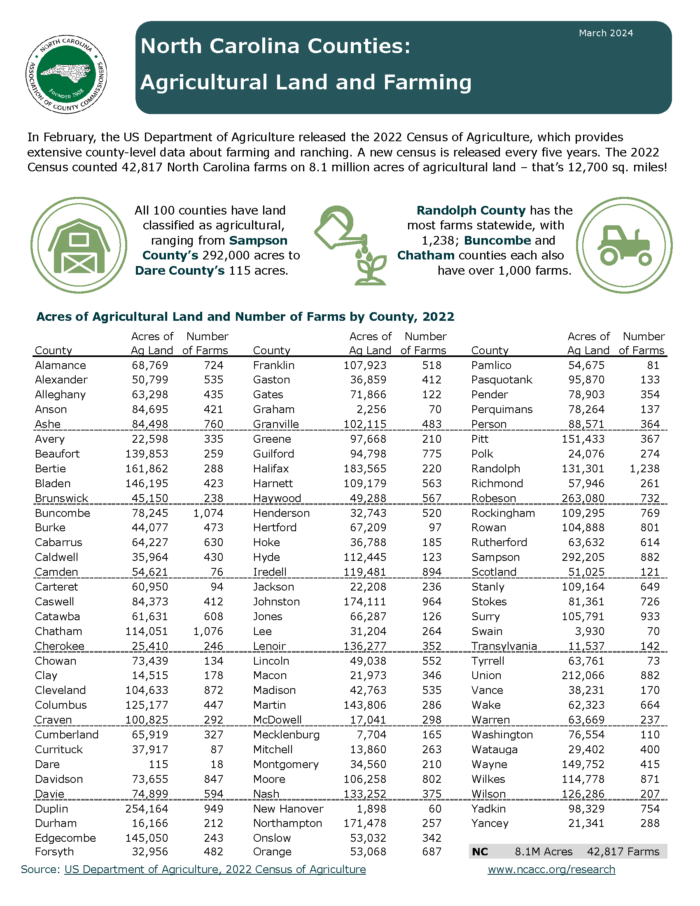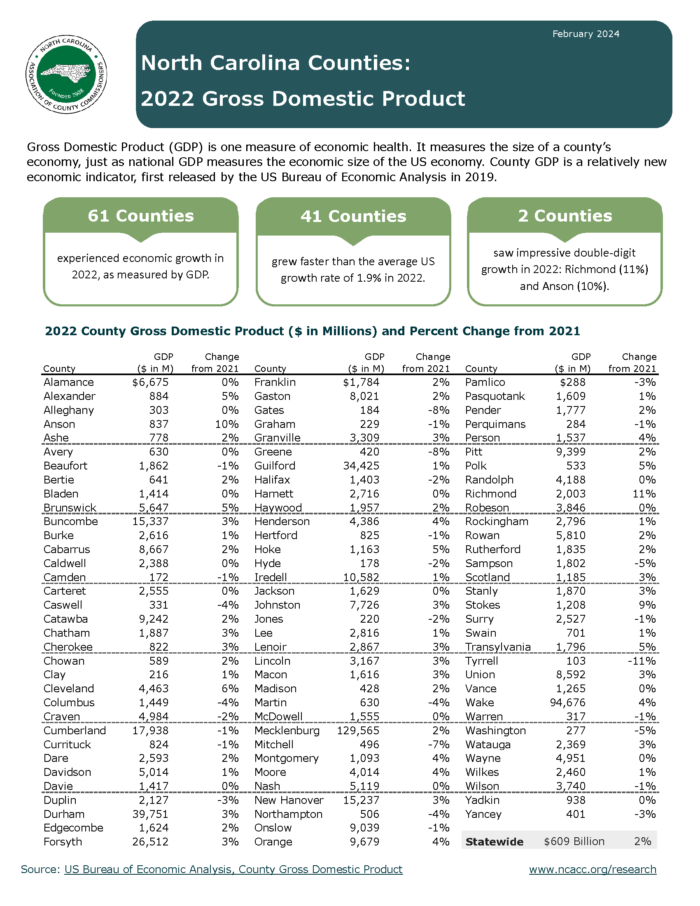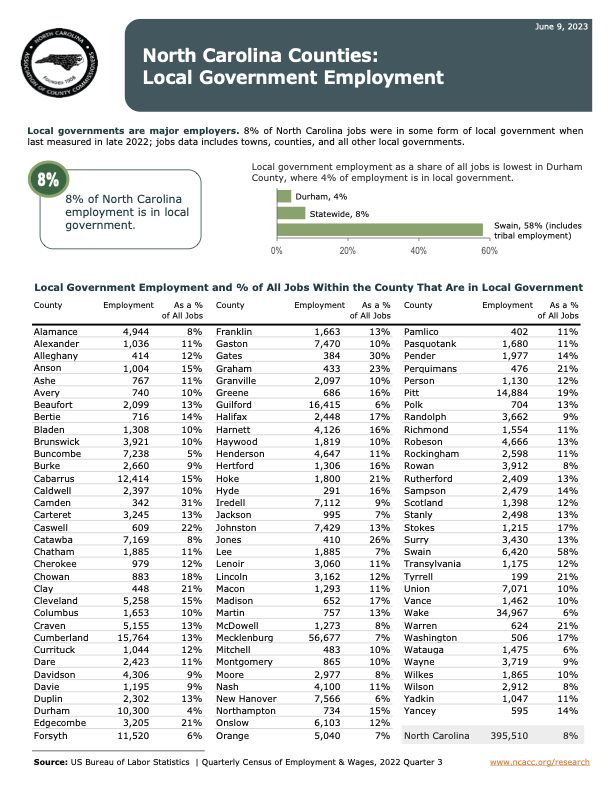NCACC aims to provide county commissioners, county staff, and related audiences with data and information useful to understanding and operating the state’s 100 counties. The Association collects and publishes survey data from counties and compiles county-level data from myriad state and federal agencies.
County Data and Information
As part of the NCACC’s vision to empower
its membership, the Association compiles data and produces research publications for North Carolina counties, partners, and those seeking information on county-level data.
County Budget, Tax,
& Finance Information
North Carolina counties manage billions of dollars annually, from taxes and other revenue sources. NCACC provides resources to guide county officials on budget, financial, and tax policy matters.
County Election Data
County Commissioners are elected in November of each even-numbered year. Commissioners are elected to either 2-year or 4-year terms. This varies by county.




